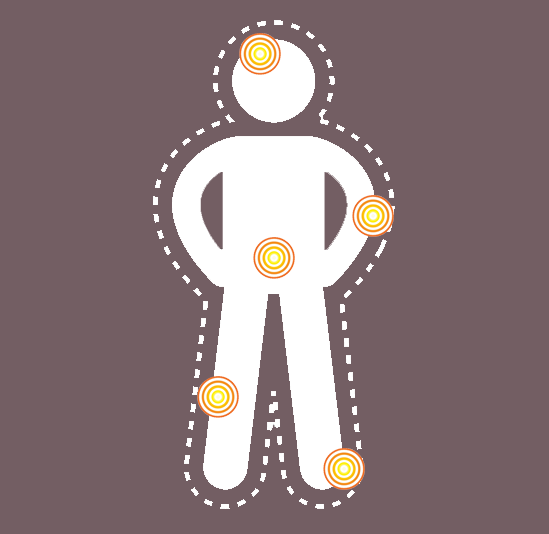What is an autoimmune disorder?
In response to an unknown trigger, the immune system may begin producing antibodies that instead of fighting infections, attack the body's own tissues.
Many different disorders have been linked to inappropriate immune system activity, including:
- Allergies
- Lupus
- Multiple sclerosis
- Inflammatory bowel disease (IBD)
- Rheumatic heart disease
- Rheumatoid arthritis
- … and possibly diabetes
[click links for more info]
Consequently, they are known as ‘autoimmune’ or ‘self-attacking-self’ disorders.
Why do I have an autoimmune disorder?
While much is known about the functioning of the immune system, much more remains to be learned.
There is currently no cure for most autoimmune diseases, but researchers are looking for new ways to treat them. The field of immunology (the study of the immune system) is one of the fastest growing fields in medicine today.
How are autoimmune diseases generally treated?
Medication can help manage symptoms and, in some cases, may even help slow the progress of the disease. Treatment may involve control of the autoimmune reaction by suppressing the immune system.
However, many of the drugs used to control the autoimmune reaction also interfere with the body's ability to fight disease. It is vital that lifestyle changes, such as a healthy diet, regular exercise, rest, and stress management form the basis of any autoimmune disease treatment plan.
How can Foodwise help?
Do you have an autoimmune disorder? Foodwise can help.
Anti-inflammatory pain medications, corticosteroids and immune suppressing drugs are not your only options. We have all the nutritional information and dietary advice to help manage autoimmune conditions naturally and bring lasting relief to many of their symptoms.
Join nowHow does healthy nutrition help treat autoimmune disorders naturally?
Conventional treatment for autoimmune diseases generally focuses on reducing immune system activity. The nutritional approach is designed to strengthen the immune system, whether it is working improperly as a result of disease, stress, inadequate nutrition, poor living habits, chemotherapy or a combination of these factors.
Since inflammation plays a key role in autoimmune disease, a dietary and lifestyle approach puts the emphasis on controlling pain and inflammation. A few promising foods and nutrients are emerging as potentially beneficial, including vitamin D and omega 3 fatty acids, especially in regards to multiple sclerosis, rheumatoid arthritis, lupus and diabetes.
An effective approach to managing autoimmune disorders includes:
- following a whole food, fibre-rich anti-inflammatory diet
- identifying food allergies and intolerance
- avoiding inflammatory foods (including the nightshade family)
- maintaining a healthy weight
- avoiding toxins
- correcting nutritional deficiencies
as well as the appropriate use of natural supplements and home remedies.

